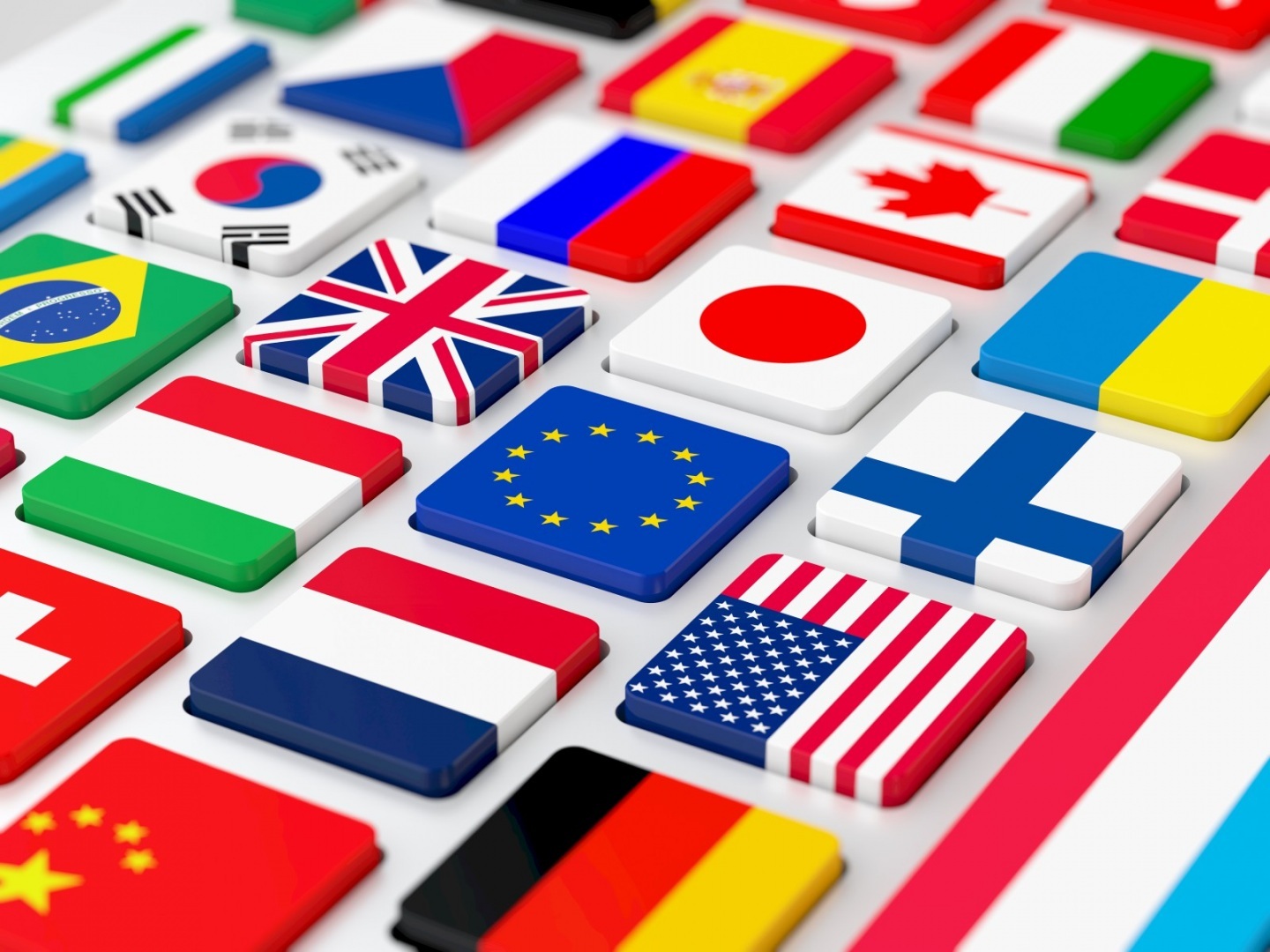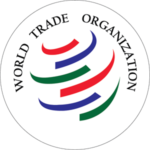
International Law
Rahman’s Chambers, with its in-depth knowledge and resources combined with experience of our lawyers in both public and private international law, is the first choice for clients such as sovereign states, MNCs, international organizations, specialized bodies formed under Treaty for international law matters involving Bangladesh. We have advised clients on WTO Agreements, EU laws impacting LDC graduation and related international laws, on multilateral treaties like Paris Agreement, regional and bilateral treaties involving issues like taxation, investment, environment, trade etc. Over the years, our Firm has adopted a wide Clientele from all sectors worldwide including but not limited to a Fortune500 listed company to International Shipping Conglomerates, providing assistance in complex international Bi/ Multi-Lateral Treaty matters and related matters. Chambers and Partners 2023 Global guide ranked us for our international works for consecutive 7 years. Their editorial says: “They are professional, and their team is well organised to assist us with complex and sophisticated matters.”

“Additionally has a recognised practice in such areas as business formation, projects and energy, real estate and employment matters.”
Specialist shipping practice covering the full scope of maritime issues including ship arrests, marine insurance, bills of lading and admiralty. Also handles shipbuilding matters, as well as ownership disputes, mortgage claims and cargo damage claims. Offers further capabilities in international trade and commercial litigation. Acts for a range of clients including shipowners, operators and P&I clubs.
 One of our lawyer is presently working in EU global technical assistance facilities for sustainable energy project, GT098 as implemented by Stantec, to identify, select and prepare the utility-scale, grid connected renewable (wind and solar) energy projects as funded by EU to Support the Govt of Bangladesh in increasing the share of renewable energy sources in the country to achieve the NDCs objectives arising under Paris Agreement as well as long-term energy supply security. Nationally determined contributions (NDCs) are at the heart of the Paris Agreement. NDCs represents the efforts by each country to reduce national emissions and adapt to the impacts of climate change. Each country share its national goals, policies and finance strategies to contribute to global climate efforts, regularly updated over five-year intervals.
One of our lawyer is presently working in EU global technical assistance facilities for sustainable energy project, GT098 as implemented by Stantec, to identify, select and prepare the utility-scale, grid connected renewable (wind and solar) energy projects as funded by EU to Support the Govt of Bangladesh in increasing the share of renewable energy sources in the country to achieve the NDCs objectives arising under Paris Agreement as well as long-term energy supply security. Nationally determined contributions (NDCs) are at the heart of the Paris Agreement. NDCs represents the efforts by each country to reduce national emissions and adapt to the impacts of climate change. Each country share its national goals, policies and finance strategies to contribute to global climate efforts, regularly updated over five-year intervals.

We have conducted a major Feasibility Study Report following Due Diligence with Way Forward for a leading International RMG and textiles supplier and manufacturer on the Challenges of Bangladesh’s graduation from its LDC status and its impact on the RMG sector. The Work involved input from multiple stakeholders both in the Govt and Private sectors utilizing the Firm’s internal resources and contacts.
 We have advised, Export Competitiveness for Jobs (EC4J) Project, under the Ministry of Commerce. We have worked on the establishing a number of self sustaining technology centers (TCs), which are basically self sustaining companies limited by guarantees, in different parts of Bangladesh with a view to advancing R & D, innovation, technology, enabling technological based testing facilities and bringing competitiveness in different export earning sectors and ensuring diversification of job and national earning etc. We also assisted client on M& A (land Acquisition) in different locations.
We have advised, Export Competitiveness for Jobs (EC4J) Project, under the Ministry of Commerce. We have worked on the establishing a number of self sustaining technology centers (TCs), which are basically self sustaining companies limited by guarantees, in different parts of Bangladesh with a view to advancing R & D, innovation, technology, enabling technological based testing facilities and bringing competitiveness in different export earning sectors and ensuring diversification of job and national earning etc. We also assisted client on M& A (land Acquisition) in different locations.
 The project will help diversify exports beyond ready-made garments (RMG) in labor-intensive and globally competitive industries such as leather goods, footwear, plastics, and light engineering. It will also help Bangladesh create more and better jobs for its population. It is implemented by Ministry of Commerce and financed by Government of Bangladesh and the International Development Association (IDA), a part of the World Bank.
The project will help diversify exports beyond ready-made garments (RMG) in labor-intensive and globally competitive industries such as leather goods, footwear, plastics, and light engineering. It will also help Bangladesh create more and better jobs for its population. It is implemented by Ministry of Commerce and financed by Government of Bangladesh and the International Development Association (IDA), a part of the World Bank.
Our experiences are as follows:
PUBLIC INTERNATIONAL LAW
Double Taxation Treaty
- Advising Larsen and Toubro Ltd, a major MNC involving double taxation treaty benefits with its operation of branch office and several projects.
- We have advised Ralph Lauren, a Fortune 500 MNC on double taxation, investment treaty and public international law matters involving Bangladesh.
- We have advised TEBIAN (TBEA) China, a Fortune 500 MNC on double taxation, investment treaty and public international law matters involving Bangladesh.
SAARC treaty, Multilateral Customs treaty
- Conducted due diligence involving fiscal incentives available within SAARC countries under bilateral/multilateral treaties between Bangladesh, India and other SAARC countries for export and import of few specified items for Sesa Care.
Treaty forming International Organization
- We have assisted our client, Partners in Population and Development (PPD), an intergovernmental initiative created specifically for the purpose of expanding and improving South-to-South collaboration in the fields of reproductive health, population, and development, operating under the charter dated 20.09.2018 signed by several member countries, in preparing a MOU to facilitate its operation in compliance with the international laws.
World Customs Organization Treaties
- We have conducted due diligence on several spices, sauce preparation, seasonings, etc. for Gourmet Foods FZC, a concern of Shan Foods Private Limited, and advised on the possible classification (HS Code) under Bangladesh laws, after taking into account WCO Conventions and several other multilateral treaties, both international and national.
WTO Agreements, PTAs, FTAs and CEPA
- We have conducted due diligence on flag vessel registration and merchant shipping law & regulations of Bangladesh and also international conventions & laws in this regard, including WTO agreements, for a shipping line and also advised them on several matters including possible changes in law and dealing with amendments proposed and also registration of a vessel under Bangladesh flag related issues.
- We have advised an MNC having significant investment in Bangladesh on international law involving compliance of labor, environmental treaties, changes involving the new EU GSP scheme, WTO’s SCM Agreements, and signing of PTAs, FTA,s and CEPA in relation to LDC graduation of Bangladesh in 2026.
Bilateral Investment Treaty
- We have recently completed advising UBICO an organization created under a bilateral investment treaty on breach of treaty provisions and obligations of respective countries under international law and consequence of such breach etc.
Bilateral and Multilateral Treaties
- Advised Svitzer A/S, (Singapore headquarters) on various regulatory matters and legal compliance of “Seaman” engaged in special Govt projects within the Territorial waters of Bangladesh and International Treaties related to the CDC along with individual taxation of foreign crewmembers.
PRIVATE INTERNATIONAL LAW
- We represented the UK P&I Club and the owner of M.V. SUPRAMAX VIVI in a collision matter which took place in Bangladesh but the Parties chose Singapore as a forum and decided not to appear before Bangladesh Courts. As Bangladesh counsel we worked together with HFW, an international law firm and were actively involved in advising, drafting based on private international law principles challenging the jurisdiction of Singapore.
Our services include:
- Negotiating and drafting inter-governmental and host government agreements concerning cross-border trade, investment and cooperation
- G2G and PPP project finance and infrastructure projects involving international law
- Rights and obligations under international trade law agreements, international intellectual property law agreements and related international environmental law agreements
- International arbitration under bilateral investment treaties and multilateral investment treaties before the International Centre for Settlement of Investment Disputes (ICSID), ICC and SARCO.
Practice Guide – International
International law usually falls into two different categories. Public International law and Private international law. Public international law is the set of rules, agreements and treaties that are binding between countries. It generally comes from three sources: treaties, customs and general principles of law. Public international law concerns the relationships between nations and international organizations. Private international law, on the other hand, is a body of rules used to resolve legal disputes between private individuals who cross international boundaries. Where a dispute is between two parties in different countries with different legal systems, private international law helps a court or tribunal determine the applicable forum for the resolution of disputes and which country’s substantive law will be used to decide the matter. Although it is called ‘international law’ it is in fact a body of domestic law, and each country has its own set of private international law. Due to the flow of global investment and trade, international law is becoming increasingly relevant for states, international organization and multinational corporations. International lawyers represent countries, international organizations, state enterprises and MNCs in both contentious and non-contentious matters. Rahman’s Chambers advises clients on both contentious and non-contentious matters involving international law.
International law, also known as public international law and law of nations,[1] is the set of rules, norms, and standards generally accepted in relations between nations.[2][3] It establishes normative guidelines and a common conceptual framework to guide states across a broad range of domains, including war, diplomacy, trade, and human rights. International law aims at the practice of stable, consistent, and organized international relations.[4]
The sources of international law include international custom (general state practice accepted as law), treaties, and general principles of law recognized by most national legal systems. International law may also be reflected in international comity, the practices and customs adopted by states to maintain good relations and mutual recognition, such as saluting the flag of a foreign ship or enforcing a foreign legal judgment.
International law differs from state-based legal systems in that it is primarily—though not exclusively—applicable to countries, rather than to individuals, and operates largely through consent, since there is no universally accepted authority to enforce it upon sovereign states. Consequently, states may choose to not abide by international law, and even to break a treaty.[5] However, such violations, particularly of customary international law and peremptory norms (jus cogens), can be met with coercive action, ranging from military intervention to diplomatic and economic pressure.
The relationship and interaction between a national legal system (municipal law) and international law is complex and variable. National law may become international law when treaties permit national jurisdiction to supranational tribunals such as the European Court of Human Rights or the International Criminal Court. Treaties such as the Geneva Conventions may require national law to conform to treaty provisions. National laws or constitutions may also provide for the implementation or integration of international legal obligations into domestic law. -source Wikipedia
Conflict of laws (also called private international law) is the set of rules or laws a jurisdiction applies to a case, transaction, or other occurrence that has connections to more than one jurisdiction.[1] This body of law deals with three broad topics: jurisdiction, rules regarding when it is appropriate for a court to hear such a case; foreign judgments, dealing with the rules by which a court in one jurisdiction mandates compliance with a ruling of a court in another jurisdiction; and choice of law, which addresses the question of which substantive laws will be applied in such a case.[2] These issues can arise in any private-law context,[3] but they are especially prevalent in contract law[4] and tort law.[5]
The term conflict of laws is primarily used in the United States and Canada, though it has also come into use in the United Kingdom. Elsewhere, the term private international law is commonly used.[6] Some scholars from countries that use conflict of laws consider the term public international law confusing because this body of law does not consist of laws that apply internationally, but rather is solely composed of domestic laws; the calculus only includes international law when the nation has treaty obligations (and even then, only to the extent that domestic law renders the treaty obligations enforcable).[7] The term private international law comes from the private law/public law dichotomy in civil law systems.[8] In this form of legal system, the term private international law does not imply an agreed upon international legal corpus, but rather refers to those portions of domestic private law that apply to international issues. -source Wikipedia
Islamic law features such as respect for legal scholarship and peaceful resolution of disputes are compatible with principles embraced by the ICJ. Several Islamic law states recognize the ICJ’s compulsory jurisdiction, several of these states embrace traditional Islamic precepts, which at first glance may seem contradictory to international law. Given the features of international and Islamic legal systems, it can be explained how are some Islamic law states attracted to international adjudication.
- Respect for ‘rule of law’ constitutes an underlying premise of international law. One of the most important faces of the Islamic concept of justice is adherence to the divine law, its interpretation and implementation. It is a duty of the believer ‘to seek justice and apply it’ (Abu-Nimer, 2003: 234). Importantly, according to the Koran, no person is above the law, including the Prophet and rulers of Muslim states.
- Islamic law promotes peaceful resolution of disputes via highlighting acknowledgment and forgiveness (Irani & Funk, 1998). Sulh, a peaceful settlement between the disputants, was the Prophet Muhammad’s preferred method of dispute resolution.
- Since its origins, Islamic law depended on the cooperation between royal and customary law (Hallaq, 2009), which contributed to the fact that several Islamic domestic legal systems are only partially codified. Customary law constitutes an important source in several Islamic law states. It is sometimes used in place of or as a supplement to written law. Often, traditional Islamic precepts and tribal laws coexist with written codifications. The existence of local customary rules has been recognized by the ICJ in some of its judgments.
Practice Guide- International law Current Affairs
Government of Bangladesh has clearly taken the LDC graduation seriously. Finance Act 2022 clearly indicates that significant changes were brought in shifting revenue collection target from traditional custom duty, trade VAT to income tax. Steps are taken to address the double origin requirement of European Union, by eliminating barriers, taxes applicable between contractor and subcontractor. A new policy has been framed namely, Regional Trade Agreement (RTA) Policy, 2022 indicting different government departments on how to move forward with the LDC graduations related issues.
It is worth mention here that international organization like WTO, EU are rules-based organizations as they operate under the prevailing international laws, WTO rules. Negotiators are required to be well versed with the rules applicable as all members countries are required to operate with the rules. LDC countries face several issues while they graduate. There are also scope for waiver and exemptions. Governments and parties interested are required to explore all viable options for their mutual benefits.
Our service includes:
- Cross Border claim
- Conflict of law matters
- Cross border litigation
Related Resources - Library
We have a rich library with a mixture of printed and online legal databases. We have printed version of All England Commercial Cases, Indian Digest of Supreme Court cases, Yearbook Commercial Arbitration of Wolter Kluwer and most law reports of Bangladesh. We subscribe to the online legal database Manuputra providing access to most reputed law reports. Read more
